林榮峰 | Emily Lee

畫作:油畫《花》| Painting: Flower (Oil on Canvas)
尺寸: 24‘’ X 18” | Dimensions: 24” x 18”
迎接新的挑戰 ─ 開花
1979我們離開紐約兩年,清澤回台大當客座教授,我們也在台灣過著「拜師」學習太極拳,挖掘傳統中「氣」的文化的寶貝的生活。1981年八月底回來時,一切彷彿重啟。兩個孩子的英文幾乎全忘了,只好暫住在 Brooklyn College 附近,立刻替孩子們辦理入學。當時正逢不少大陸移民抵美,孩子們被編入所謂的「放牛班」。哥哥雖曾在台灣跳級、念完五年級,也被這樣安置,對他而言是一大羞辱。所幸不到一個月,老師發現他聰穎異常,立即轉入資優班。學期結束後,更被推薦報考全紐約唯一七年級開始的資優中學──Hunter College High School。有幸錄取,成為該校九年來首位考上的學生,也為學校帶來榮耀,讓他重新建立自信。
妹妹回到三年級,雖錯過兩年的閱讀訓練,卻愛書成癡,從此養成良好的閱讀習慣,為她日後主修英文寫作奠定基礎。這兩年看似美國教育的空白,卻讓孩子們的中文與台語能力大大提升。哥哥還看完整套金庸的武俠小說,津津有味。回美後剛好華埠正上映改編電影,他看得如癡如醉,多了一項寶貴的語言能力。
外子原本在校的實驗室飼養著三百多隻老鼠,這回歸零,研究轉向「生物回饋」,探討行為與遺傳的關聯。我先協助他重建實驗流程,直到新學生加入才逐步放手。他則集中研究「氣」對生活與生理的影響,特別是練氣對腦波的變化。此時正值美國心理學界對此興趣日增,他也被邀請加入幾個大型研究計畫,並以心理學者與氣功師雙重身份參與,逐步將華人的「氣」文化引入美國社會。
後來他被選為心理系系主任,該系為全校最大,有四十多位教授,大多為猶太裔心理學者。行政壓力沉重,幸好他每日勤練功、打坐,深根立基,再加上對信仰的堅持──仰望上帝賜予智慧與力量,終於化解教授間原本的隔閡與衝突。一任三年,他竟連任三次,整整九年,直到最後轉任學校學生的心理輔導師,直至退休。
我回來後也立即重拾對主的承諾。教會當時正處低潮,會友流失,怨聲載道,為了激發會友的向心力,教會創辦刊物,鼓勵投稿,我積極參與並被推舉為編輯。從此展開每月一期的出刊旅程,白天練功、靈修,夜裡編輯,快樂而充實。漸漸地,我開始真正讀懂了曾經不明的聖經內容,發現許多真理與太極的修煉竟是相通的──柔中有力、順勢而行、心靈合一。刊物內容也逐漸凝聚教會向心力,適時有新的牧師加入,牧會的需要得以回應,刊物的使命亦圓滿達成。
生活逐漸步上軌道,我專注精進太極拳,鑽研每個動作的功用與原理。我們也搬回史德頓島的古蹟屋,後院廣闊,是理想的練功之地。
孩子們升上高中後,我終於可以放心展開職涯。在曼哈頓房地產界開拓市場,或許是遺傳了父親對房地產的敏銳,我總有特別的直覺。這個領域競爭激烈,氣場強弱攸關成敗,稍一示弱便遭吞噬。幸而多年氣功鍛鍊讓我內外兼備,正值市場蕭條、交易幾近停滯時,我竟完成公司第一筆成交,成為眾人眼中的奇蹟。回首這段歷程,都是靠著在台灣深植的底蘊,終於在異地開花。
這幅油畫《花》,正象徵那兩年我們一家在台灣如同「挖寶」般的生活。如今,那些種下的種子──終於開花綻放。
Embracing New Challenges — Blossoming
In 1979, we left New York for two years while Ching-Tse returned to National Taiwan University as a visiting professor. When we came back at the end of August 1981, it felt like starting over. Our two children had almost completely forgotten their English, so we temporarily moved near Brooklyn College and immediately arranged for their school enrollment. At that time, many immigrants from mainland China were arriving in the U.S., and the children were placed into what was referred to as “remedial classes.”
Even though our son had skipped a grade and completed fifth grade in Taiwan, he was placed in such a class—an enormous blow to his pride. Fortunately, within a month, his teacher recognized his exceptional intelligence and promptly transferred him to the gifted program. At the end of the semester, he was recommended to take the entrance exam for the only middle school in New York that began its gifted program in seventh grade—Hunter College High School. He was admitted, becoming the first student in nine years from his school to be accepted, bringing honor to his school and restoring his confidence.
Our daughter entered third grade. Though she had missed two years of reading instruction, she became deeply enamored with books, developing a lifelong love for reading that laid the foundation for her later major in English writing. What seemed like a two-year gap in their American education turned out to be a great boost in their Chinese and Taiwanese language skills. Our son even finished reading the entire set of Jin Yong’s martial arts novels with great delight. Upon our return to the U.S., Chinatown was showing movie adaptations of these novels—he was utterly captivated, gaining a precious linguistic ability in the process.
My husband had previously maintained a lab of over 300 mice at the university, but now he had to start from scratch. He shifted his research focus to biofeedback, exploring the connection between body and mind. I helped him rebuild his experimental protocols until new students joined the lab. He then focused his studies on the impact of qi (vital energy) on daily life and physiology, particularly how qi practice influences brainwaves. This coincided with a growing interest in the U.S. psychology field. He was invited to participate in several major research projects, taking part both as a psychologist and a qigong practitioner—gradually introducing the Chinese culture of qi into American society.
Later, he was elected as chair of the psychology department—the largest department in the university, with over 40 professors, most of whom were Jewish. The administrative pressure was intense. Thankfully, his daily practice of qigong and meditation grounded him deeply. Combined with his unwavering faith—looking to God for wisdom and strength—he managed to resolve longstanding tensions and conflicts among faculty. His initial three-year term extended to three consecutive terms, lasting nine years, until he transitioned to serving as a counselor for students, a role he held until retirement.
As for me, I also recommitted myself to the Lord upon returning. The church was going through a difficult period—losing members and filled with discontent. To rekindle unity among the congregation, the church launched a publication and encouraged members to submit articles for publication. I participated actively and was eventually appointed editor. Thus began a journey of publishing a monthly journal. My daytime was for qi practice and spiritual devotion; nighttime was for editing the journal articles. It was joyful and fulfilling.
Gradually, I began to truly understand the Bible passages I once found obscure and realized that many of its truths aligned with the principles of Tai Chi—strength in gentleness, flowing with the current, unity of mind and spirit. The publication helped the church regain its cohesion. At just the right time, new pastors joined, addressing the church’s pastoral needs and bringing the publication’s mission to completion.
Life gradually returned to rhythm. I focused on in-depth study in Tai Chi, analyzing the function and principles behind each movement. We also moved back to our historic house on Staten Island. The spacious backyard became an ideal place for daily practice.
Once the children enrolled in high school, I was finally free to pursue my own career. I entered the competitive world of Manhattan real estate. Perhaps I inherited my father’s instinct for real estate—I have a good sense of the business. In this fiercely competitive field, energy presence determines success; any sign of weakness is swiftly exploited. Thankfully, years of qigong practice had equipped me with strength both within and without. During a severe market downturn, when transactions had nearly ground to a halt, I was able to close the company’s first deal—a miracle in the eyes of many.
Looking back on this journey, it was the deeply rooted foundation planted in Taiwan that finally allowed me to blossom in a foreign land. This oil painting, Flower, symbolizes those two years our family spent in Taiwan—like uncovering hidden treasure. Now, the seeds we sowed have finally bloomed in full.
